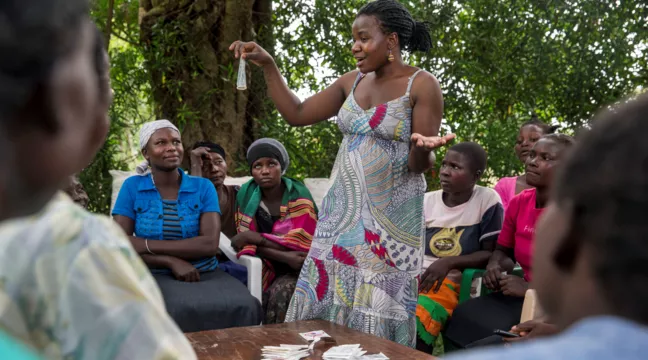
What does SRHR mean?
RFSU's vision is a world in which everyone is free to make decisions about their own bodies and sexuality. To achieve this, we work with Sexual and Reproductive Health and Rights, SRHR.
Sexual and reproductive health is a state of physical, emotional, mental, and social wellbeing in relation to all aspects of sexuality and reproduction, not merely the absence of disease, dysfunction, or infirmity. Therefore, a positive approach to sexuality and reproduction should recognise the part played by pleasurable sexual relationships, trust, and communication in the promotion of self-esteem and overall wellbeing. All individuals have a right to make decisions governing their bodies and to access services that support that right. Achievement of sexual and reproductive health relies on the realisation of sexual and reproductive rights.
Definition of SRHR from the UNCPD
At the UN Conference on Population and Development in Cairo in 1994, sexual and reproductive health was defined for the first time.
Sexual health
"A state of complete physical, mental and social well being and not merely the absence of disease or infirmity, in all matters relating to the reproductive system and to its functions and processes."
This means that people are able to have a satisfying and safe sex life, and that they have the capacity to reproduce and the freedom to decide if, when and how often to do so.
Reproductive health
Good reproductive health requires, for example, good maternal healthcare, i.e. services for maternity and childbirth. This includes emergency obstetric care and knowledge of sexuality and reproduction, as well as access to contraception and safe abortion.
Reproductive rights
Reproductive rights are defined as the right to freely decide the number, spacing of children, and to have the information, education and the means required to exercise this right.
Sexual rights
So far, sexual rights have not been defined in international agreements. This is because issues surrounding human rights relating to sexuality are considered to be too controversial by some states. However, sexual rights are part of the human rights defined in the international framework comprised of UN conventions. This means that people, irrespective of sex, ethnic background, disabilities, gender identity or sexual orientation, are entitled to make decisions about their own body and sexuality, and should not be subjected to discrimination, harassment or violence.